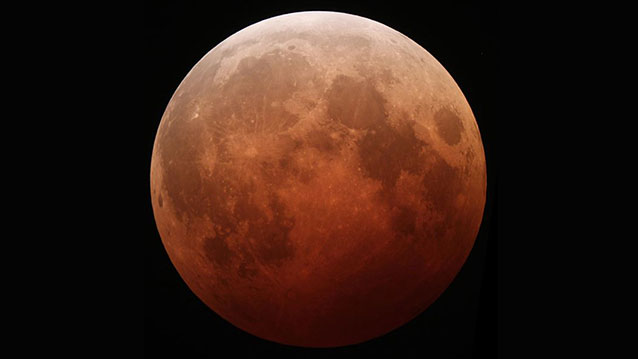EVANSTON, Ill. --- A rare total lunar eclipse will take place Sunday, Sept. 27. Get a close-up view of the bright full moon gradually turning dark red at a special viewing event that evening on Northwestern University’s Evanston campus.
Weather permitting, the free public event will be held from 8 to 11:30 p.m. on the top level of the Segal Visitors Center Parking Garage, 1847 Campus Drive. The eclipse begins at 8:07 p.m. and ends at 11:27 p.m. The moon will be totally eclipsed for about an hour and 12 minutes.
If you miss this chance, the next total lunar eclipse viewable from Chicago in its entirety won’t be until Jan. 21, 2019.
Three large telescopes will be set up for visitors. Faculty, postdoctoral fellows and graduate and undergraduate students from Northwestern’s Center for Interdisciplinary Exploration and Research in Astrophysics (CIERA) will be on hand to answer questions and operate the telescopes.
Total lunar eclipses are fairly rare, occurring when the entire moon moves into the Earth’s shadow. Over the course of a few hours, the moon changes from a bright full moon to a dark reddish or coppery-colored moon.
“This is a chance to witness how the Earth, moon and sun are all connected,” said Michael Smutko, a professor of instruction in physics and astronomy in the Weinberg College of Arts and Sciences. “The three must be aligned to form a straight line, so the Earth’s shadow completely envelops the moon, for a total lunar eclipse.”
CIERA regularly hosts a variety of outreach events connecting the public to astronomical events and astronomers. Last October, close to 200 people gathered atop the same parking garage to safely view a partial solar eclipse.
Up-to-date information on the Northwestern event can be found online.


